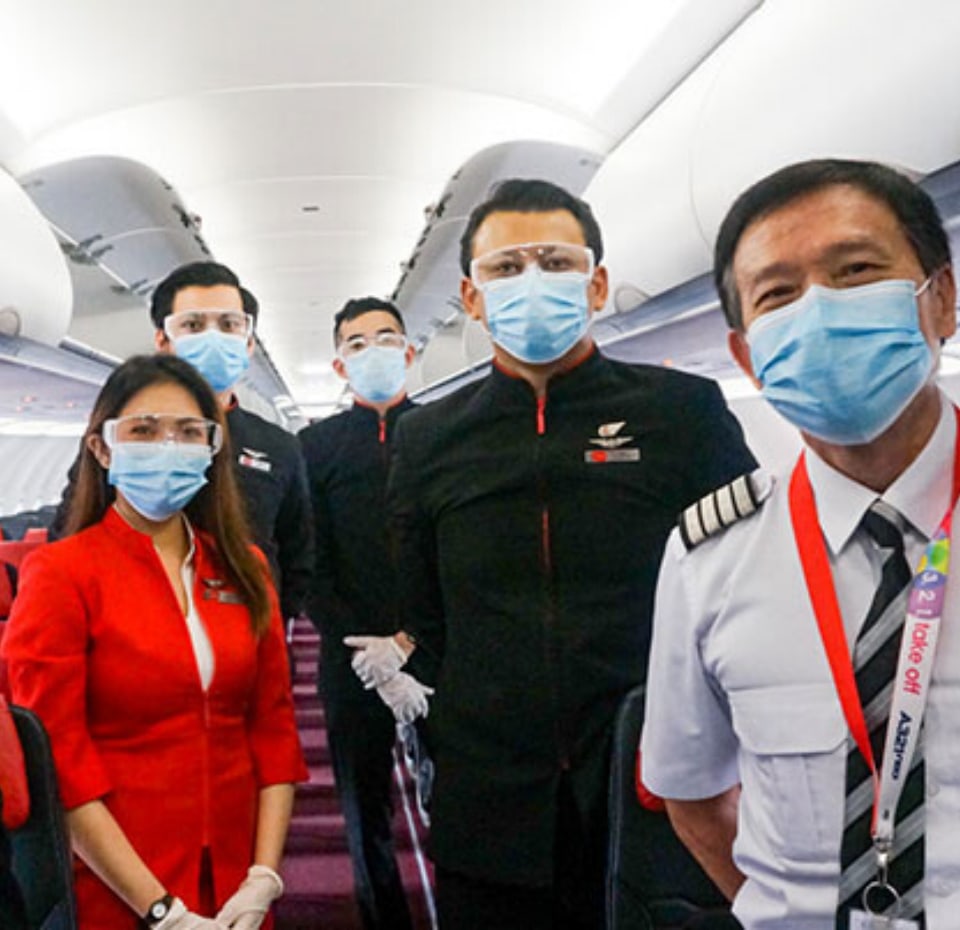After a one-month hibernation, AirAsia has resumed its domestic flight operations in Malaysia on 29th April 2020. The ongoing global pandemic hit the aviation industry hard. With travel restrictions and countries closing the borders, even the major airlines have had to cease operations.
The airline will initially conduct flights to key domestic routes. Once the situation improves and travel restrictions are lifted, AirAsia will gradually include international destinations around the region. Ensuring strict health controls and social distancing protocols remain in place, the airline resumed its operations as an attempt for longevity. AirAsia has taken a number of measures to reduce cost and combat COVID-19.
According to the Executive Chairman of AirAsia Group, Kamarudin Meranun, flexibility remains the key to the airline’s business model. The airline’s decision to sell and lease its aircraft in 2018 provided them with greater flexibility to scale back growth. This has eliminated the residual risk of owning aircraft, and helped the airline in managing and reducing cost today.
Management and senior employees of AirAsia Group have voluntarily sacrificed their salaries to further reduce cost. In addition to that, the airline is also re-negotiating contracts while deferring all non-essential expenditures.
Despite the unprecedented environment we are currently in, we are continuing to build on our strengths and especially our brand so as to emerge stronger when normalcy returns. We hope to continue to sustain the 1.3 million jobs and counting in the sector in the region, directly and indirectly, and double our economic contribution to ASEAN’s GDP from US$15.3 billion in 2018 to US$35 billion in 2030.”
Kamarudin Meranun, Executive Chairman of AirAsia Group
AirAsia has also restructured a major portion of the fuel hedges and are still in process of restructuring remaining exposure. The decision will help in dealing with excess of hedged volume against expected fuel consumption post-COVID-19. Moreover, it will reduce the hedging losses for the airline if fuel price remains at the current prices.
AirAsia plans to continue diversification of the airline’s revenue base with a diligent and market-friendly approach to expand their digital and ancillary businesses. The digital and ancillary businesses include Santan, Teleport and BigPay.
Santan started as ‘AirAsia Café’ by serving sandwiches and snacks in the sky, and established as ‘Santan’ in 2015. In addition to providing regular takeaways, Santan has launched a drive-thru service due to the increasing demands. Moreover, Santan is also helping small vendors by marketing their food through the Santan website during the month of Ramadan. Plans for starting a franchise for Santan are also underway.
Cargo and logistics platform for AirAsia, Teleport is prioritizing the transportation of medical supplies to frontliners and emergency medical responders. Furthermore, Teleport has been operating a number of chartered flights especially for cargo shipment. Boosting its charter service, AirAsia took part in a number of recovery flights initiated by governments and private companies during the period.
While ensuring the airline’s sustainability, the airline has also taken several measures to help as many local businesses as possible. With that in mind, AirAsia launched the ‘Save Our Shops’ campaign allowing businesses onboard their online platform ‘OURSHOP’ with last-mile delivery by Teleport. Furthermore, AirAsia Foundation has launched an e-pay donation drive in collaboration with BigPay.
We expect all these initiatives to result in at least a 30% cost reduction YoY in 2020.” – Kamarudin Meranun
Kamarudin Meranun, Executive Chairman of AirAsia Group
AirAsia was established in 2001 with an aim to allow everyone to fly. Renowned as the World’s Best Budget Airline, AirAsia has delivered exemplary services at low fares to over 600 million passengers across Asia Pacific. The airline proves that low cost does not mean low quality and that air travel does not have to be expensive.








